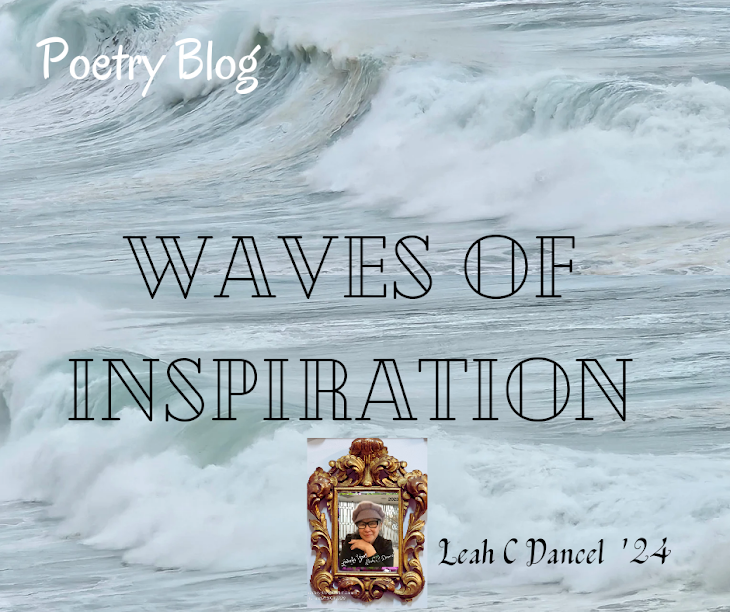By Emily Dickinson
Lifted from English Literature
Because I could not stop for Death –
He kindly stopped for me –
The Carriage held but just Ourselves –
And Immortality.
We slowly drove – He knew no haste
And I had put away
My labor and my leisure too,
For His Civility –
We passed the School, where Children strove
At Recess – in the Ring –
We passed the Fields of Gazing Grain –
We passed the Setting Sun –
Or rather – He passed Us –
The Dews drew quivering and Chill –
For only Gossamer, my Gown –
My Tippet – only Tulle –
We paused before a House that seemed
A Swelling of the Ground –
The Roof was scarcely visible –
The Cornice – in the Ground –
Since then – 'tis Centuries – and yet
Feels shorter than the Day
I first surmised the Horses' Heads
Were toward Eternity –
EMILY DICKINSON
***
CTTO
Source: Read More Books

She wrote 1,800 poems, and only 10 were published in her lifetime—all without her permission. Emily Dickinson spent thirty years writing some of the most revolutionary poetry in American literature. And almost no one knew. She didn't seek fame. She didn't want publication. When a few of her poems appeared in newspapers—edited, "corrected," stripped of her distinctive punctuation and capitalization—she was horrified. They had ruined them. So she stopped trying. She wrote for herself, and for a handful of people she trusted. Born in 1830 in Amherst, Massachusetts, Emily grew up in one of the town's most prominent families. Her father was a lawyer and congressman. Her family expected her to be social, accomplished, marriageable. She had other plans. In her late twenties, something shifted. Emily began declining invitations. She stopped going to church. She saw fewer people. By her thirties, she rarely left her family's property. By her forties, she wouldn't come downstairs to greet visitors—she'd lower baskets of gingerbread from her bedroom window instead, or speak to guests from the top of the stairs while remaining hidden. No one knows exactly why. Some scholars believe she suffered from anxiety or agoraphobia. Others suggest epilepsy, or eye problems that made bright light painful. Some think she simply preferred solitude to society's suffocating expectations of women. Maybe all of it was true. What we know for certain is this: in that upstairs bedroom, Emily Dickinson was writing poetry unlike anything America had ever seen. Her poems were short, sharp, startling. They broke all the rules. She used dashes instead of conventional punctuation. She capitalized Random words for Emphasis. Her rhymes were slant and strange. Her syntax twisted like roots breaking through stone. She wrote about death as if it were a gentleman caller arriving in a carriage. She wrote about hope as a bird with feathers. She wrote about pain so precisely that readers a century later would say, "Yes. Exactly that. "But she shared her work with almost no one. One person she did trust was Thomas Wentworth Higginson, a well-known editor and writer. In April 1862, Emily sent him four poems with a letter asking, "Are you too deeply occupied to say if my Verse is alive? "Higginson was baffled. Her poems were brilliant but strange—too strange for the literary magazines of the day. He encouraged her to keep writing but advised her not to publish. She didn't mind. She kept sending him poems anyway, hundreds over the years. Their correspondence became one of the most fascinating literary relationships in American history: a famous editor who didn't quite understand the reclusive genius who kept writing to him. Then, around 1863, Emily started wearing only white. White dresses. White shawls. Nothing else. Every day, for the rest of her life. Her neighbors noticed. People whispered. The woman who never left her house now looked like a ghost when she did appear at a window. Why white? No one knows for sure. Some scholars think it symbolized purity or artistic dedication—a kind of uniform for her vocation as poet. Others suggest it was mourning that never ended, perhaps for a lost love (she had intense emotional attachments to several people, though whether any were romantic remains debated). Some believe it was simply practical: she could focus on poetry instead of choosing what to wear. Whatever the reason, the white dresses became part of her legend: the reclusive poet in white, writing upstairs while the world moved on without her. She wasn't completely isolated. She wrote hundreds of letters—witty, warm, philosophical letters to friends and family. She tended her conservatory, growing exotic flowers. She baked bread for neighbors. She had deep friendships, just conducted almost entirely through correspondence. And she wrote. Constantly. By the time she died in 1886 at age 55, Emily Dickinson had written approximately 1,789 poems. She kept them in hand-sewn booklets she called "fascicles," hidden in a drawer in her bedroom. Her sister Lavinia found them after her death and was stunned. She knew Emily wrote poetry, but had no idea how much. Lavinia was determined to get them published, despite Emily's wishes for privacy. It took years. The first collection appeared in 1890, heavily edited to make the poems more "conventional"—exactly what Emily had feared. But even butchered, they were a sensation. Readers recognized genius. It wasn't until 1955 that Emily Dickinson's poems were finally published as she wrote them, with all her odd punctuation and wild capitalizations intact. And suddenly, readers could see what she'd been doing: not breaking rules out of ignorance, but inventing an entirely new way of writing. Today, Emily Dickinson is recognized as one of America's greatest poets, alongside Walt Whitman. Her work influenced modernists like T.S. Eliot and continues to shape contemporary poetry. But here's what makes her story remarkable: she did it all while rejecting everything the literary world demanded. She didn't network. She didn't promote herself. She didn't conform to editorial expectations. She didn't seek approval or fame or validation. She just wrote what she needed to write, exactly how she needed to write it, in a room upstairs while wearing white. And 140 years after her death, millions of people read her words and think: "Yes. She understood. "Emily Dickinson proved that you don't need the world's permission to create something that matters. You don't need to be seen to be significant. You don't need to explain yourself to anyone. Sometimes the most powerful thing you can do is close the door, write your truth, and trust that eventually, the right people will find it. She wrote: "I'm Nobody! Who are you? / Are you—Nobody—too? "Turns out, that Nobody changed everything.

























